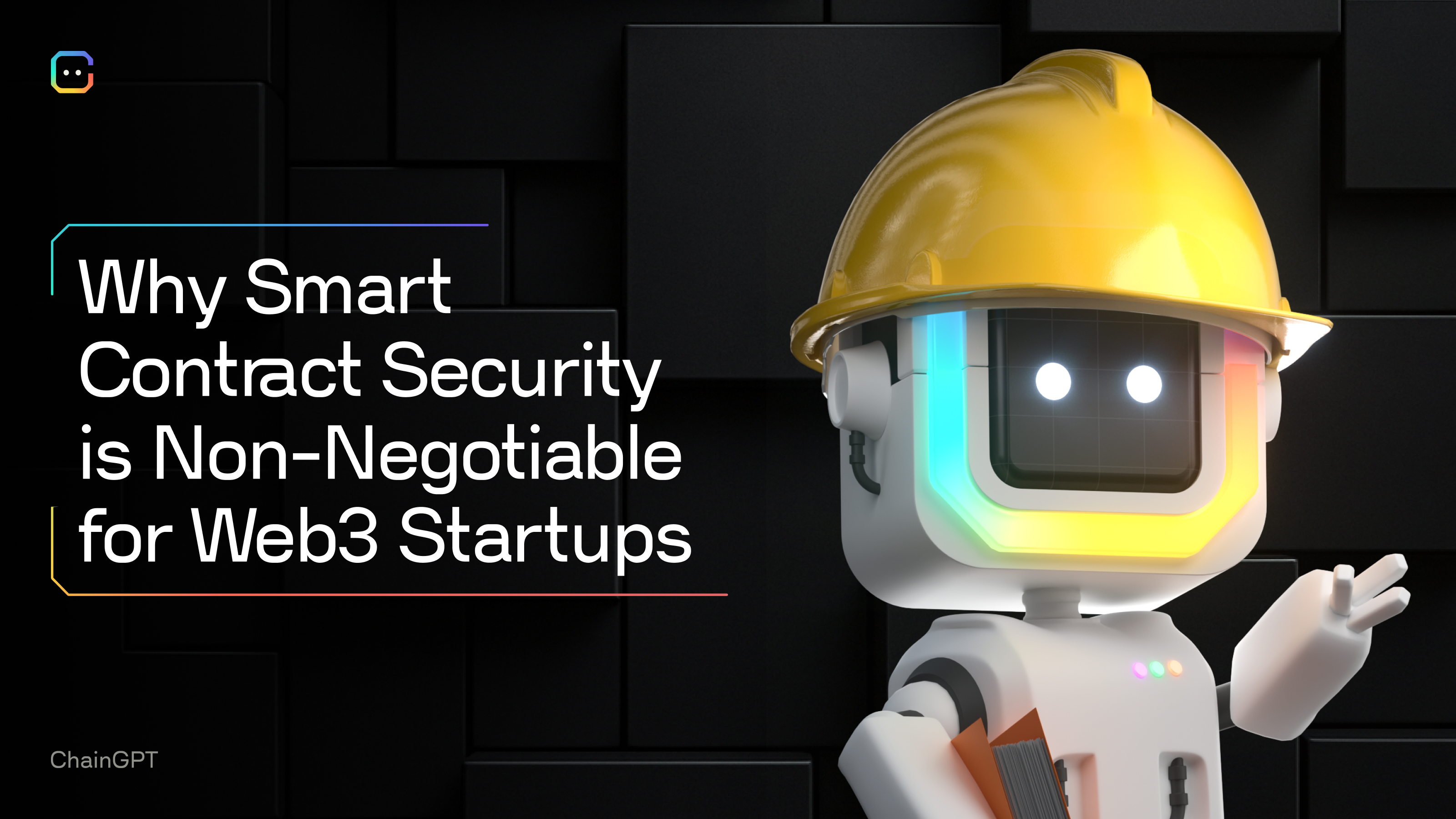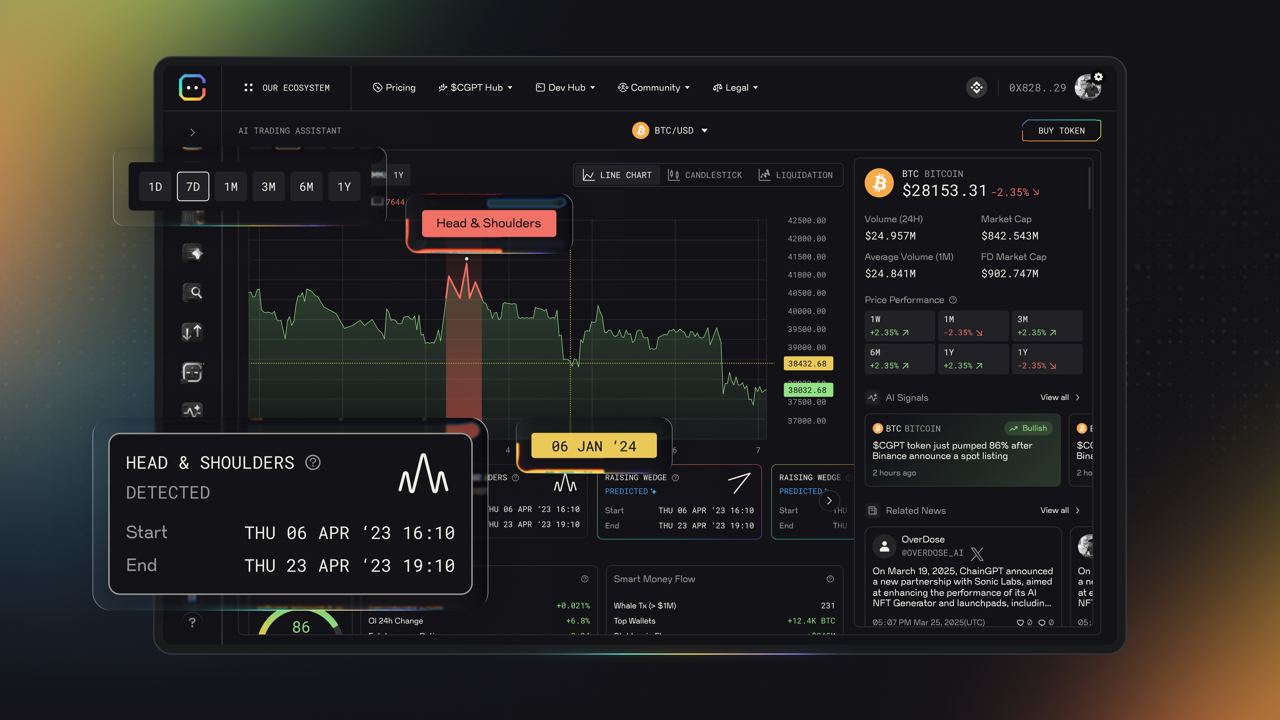
Founders: Don't Ignore Smart Contract Security
In the dynamic and decentralized world of Web3, the cost of a single line of faulty smart contract code can be catastrophic. According to industry reports, Web3 projects lost over $1.8 billion to hacks and exploits in 2023 alone—most stemming from vulnerabilities in unaudited contracts. As investment, user growth, and innovation accelerate across the blockchain landscape, Web3 founders are coming to realize that robust smart contract security is not just a technical best practice—it’s a non-negotiable business requirement.
For startups aiming to build trust and scale in this high-stakes environment, prioritizing code security is mission critical. This article breaks down the evolving risks, common pitfalls, and actionable strategies that separate successful Web3 builders from cautionary tales. It also explores how artificial intelligence is revolutionizing smart contract auditing, offering a scalable and cost-effective safety net for emerging teams.
The Risk Landscape: Why Code Security Can Make or Break Your Web3 Startup
The promise of decentralized applications lies in their autonomy and transparency—but also in their immutability. Once deployed, a smart contract on the blockchain is nearly impossible to change without consensus or costly rework. This permanence makes unpatched vulnerabilities irresistible targets for attackers.
Problem: The Devastating Impact of Vulnerable Smart Contracts
- High-Value Targets: Every year, hackers exploit bugs in DeFi protocols, NFT marketplaces, and wallets, often resulting in multimillion dollar asset drains.
- Public Trust at Stake: A breach can irreparably damage a startup’s reputation, causing user attrition and derailing future fundraising.
- Regulatory & Legal Exposure: Exploits can trigger compliance consequences or class-action litigation against project leaders.
Solution: Proactive Security—A Foundational Requirement
- Security-First Culture: Integrate code reviews and threat modeling into every stage of product development.
- Collaboration: Work with white-hat auditors and leverage collective intelligence through bug bounties.
- Automated Tools: Empower in-house teams with accessible auditing and code analysis solutions.
Modern chains and smart contract platforms offer more security features than ever, but Web3’s breakneck pace means human error remains a common—and costly—threat. This is why next-generation AI-empowered tools are gaining widespread adoption.
.jpg)
How To Bulletproof Your Startup’s Smart Contract Code
Step 1: Adopt Security Best Practices from Day One
Define code standards and enforce peer reviews for every smart contract your team ships.
Pro-Tips
- Stick to well-battle-tested contract patterns (think OpenZeppelin libraries).
- Minimize privileged functions and ensure only necessary permissions exist.
- Schedule regular security “fire drills” to simulate breach scenarios.
Step 2: Integrate Automated Auditing for Every Release
Time and budget limitations prevent most startups from hiring a dedicated security team. This is where advanced AI solutions come into play. With tools like the ChainGPT Smart-Contracts Auditor, founders can scan, analyze, and receive actionable feedback on their smart contracts—before putting assets at risk.
- Scan for known attack vectors, logic flaws, and misconfigurations in minutes.
- Receive prioritized vulnerability lists and recommended remediations.
- Access a user-friendly interface supporting audits on major chains (Ethereum, BNB Chain, Solana, and more).
Step 3: Continuous Monitoring and Post-Deployment Vigilance
Don’t treat auditing as a one-time event. New vulnerabilities emerge frequently as the ecosystem evolves.
Pro-Tips
- Subscribe to security advisories and update dependencies regularly.
- Use real-time monitoring tools to flag suspicious on-chain activity.
- Document and review any contract upgrades or patches—transparency builds user trust.
Myth: “Startups Can Skip Auditing Until They Scale”
Some founders believe solid security is a luxury to worry about after getting traction. The reality is that early vulnerabilities are often the most damaging—and public blockchain exploits rarely go unnoticed.
Reality Check
- Even pre-revenue protocols have been targeted and compromised within hours of launch.
- Smart contract exploits are frequently automated by bots—no project is too small for attackers.
- AI-driven auditors like ChainGPT Smart-Contracts Auditor provide professional-grade security scanning at a fraction of traditional auditing costs, lowering the barrier for emerging teams.
.jpg)
What Every Web3 Founder Should Take Away
Smart contract security is the safety net beneath your startup’s ambitions. AI-powered auditing tools bring scalable, accessible, and effective code analysis to the forefront, allowing founders to preempt risks rather than react to breaches.
Founders who lead with a security-first mindset earn user trust, attract strategic investment, and lay the foundation for sustainable, long-term growth in the decentralized world. As the Web3 industry matures, prioritizing smart contract auditing is not just responsible—it’s the key to resilient innovation.
About ChainGPT
ChainGPT delivers leading-edge AI infrastructure for Web3, empowering builders and enterprises to launch, scale, and secure blockchain products with confidence. Its trusted AI-powered auditing and smart contract tools are recognized across the industry.
Disclaimer: This article is for informational purposes only and does not constitute investment advice.







.jpg)
























